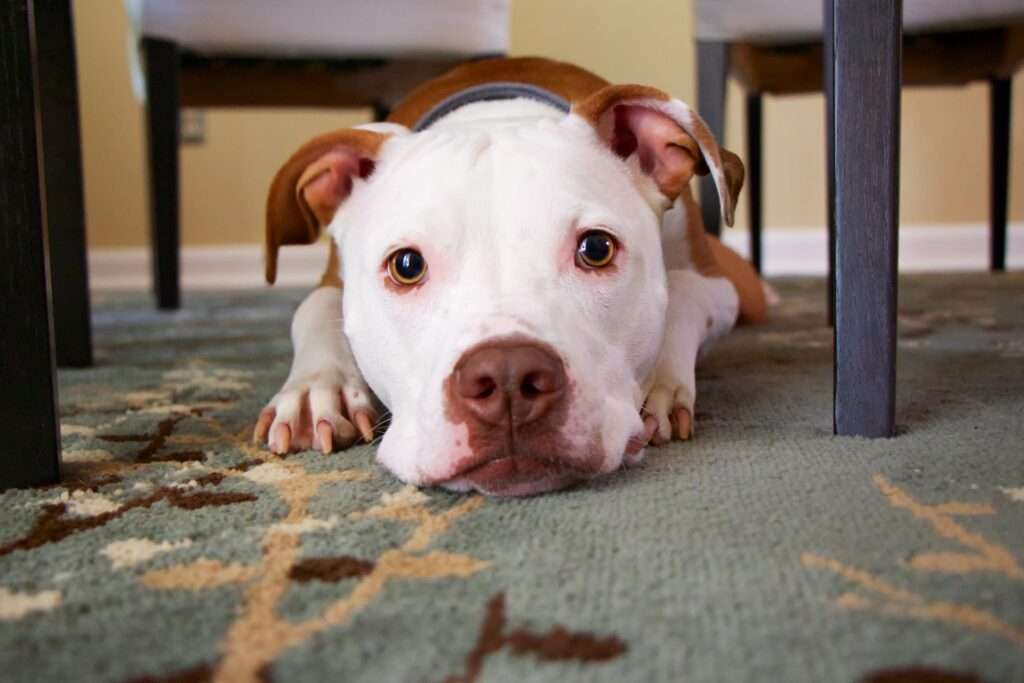What Does Catnip Do to Dogs? The Answers May Surprise You
As pet parents, we are constantly seeking ways to keep our furry companions content and engaged. We often provide them with toys, treats, and other forms of entertainment to achieve this goal. However, sometimes it’s not just about what we offer, but also what they discover on their own.
A prime example of this is catnip, which is a well-known attraction for our feline friends. But what about dogs? Can they enjoy the same benefits as their feline counterparts? This article will delve into the topic of the effects of catnip on dogs and whether it is safe for our canine companions to consume.
What is Catnip?
Catnip, also known as catmint, is a fascinating herb that belongs to the mint family. It’s a plant native to Europe and Asia, but it has found its way to North America and is now widely cultivated. The secret behind catnip’s allure lies in its compound called nepetalactone, which has a profound effect on our feline friends.
When cats encounter catnip, they often undergo an entertaining transformation. They might become hyperactive, start rolling around, or enthusiastically rub themselves against nearby objects. It’s a source of endless amusement for cat owners worldwide. However, it’s worth noting that not all cats react to catnip, and the intensity of the response can vary from one cat to another.
Given the captivating effects it has on cats, many pet owners wonder if catnip can also be enjoyed by their canine companions. However, the truth is that catnip doesn’t have quite the same effect on dogs as it does on cats. While some dogs might show mild curiosity or interest in catnip, others may not react at all.
Can Dogs Have Catnip?

While catnip is commonly associated with cats, it’s true that dogs can also be intrigued by this intriguing herb. The chemical compound called nepetalactone found in catnip can have a mild effect on dogs, although it’s not as potent as it is in cats.
Just like humans, dogs have their own unique preferences and reactions to various stimuli. While some dogs may show a mild attraction to catnip, others may not display any interest at all. It’s important to note that even if your dog seems drawn to catnip, it doesn’t necessarily mean it’s safe for them to consume.
When it comes to introducing catnip to your furry friend, caution is key. While catnip is generally considered safe for dogs, it’s essential to monitor their response closely. Some dogs may have a negative reaction to catnip, experiencing symptoms such as digestive upset or other discomfort. If you notice any adverse effects, it’s best to discontinue the use of catnip and consult with your veterinarian.
What Does Catnip Do to Dogs?
The effects of catnip on dogs are not as extensively studied as they are in cats. While some pet owners have observed certain reactions in their dogs, it’s important to note that the responses can vary from dog to dog.
Some dog owners have reported that their dogs appear to become calm or relaxed after ingesting catnip. It seems to have a soothing effect on certain dogs, similar to the calming sensation it induces in cats. On the other hand, some dogs may become more playful or energetic after exposure to catnip, just like the reactions seen in cats.
However, it’s crucial to closely monitor your dog’s response to catnip and exercise caution. While catnip is generally considered safe for dogs, some individuals may experience adverse effects. Digestive issues, such as vomiting or diarrhea, have been reported in dogs after consuming catnip. If you notice any concerning symptoms or changes in your dog’s behavior, it’s best to consult with your veterinarian for guidance.
Additionally, it’s important to remember that catnip should not be viewed as a universally safe treat for all dogs. Each dog is unique, and their reactions can vary. It’s always wise to introduce new substances or treats in moderation and observe how your individual dog responds.
What Happens if a Dog Eats Catnip?
When a dog eats catnip, the effects can vary depending on the individual dog and the amount consumed. Here’s what you need to know:
- Mild or No Reaction: In many cases, dogs may not exhibit any significant reaction to eating catnip. Some dogs may simply pass it through their system without any noticeable effects.
- Digestive Issues: In some instances, dogs may experience digestive issues after consuming catnip. This can include symptoms such as vomiting or diarrhea. If your dog exhibits these symptoms, it’s important to monitor them closely and contact your veterinarian if the symptoms persist or worsen.
- Mild Sedative Effect: Although less common, some dogs may experience a mild sedative effect after ingesting catnip. They may appear calmer or even sleepy. However, it’s worth noting that this sedative effect is generally not as pronounced in dogs as it is in cats.
- Allergic Reactions: Like any substance, there is a possibility of allergic reactions in some dogs. If you observe signs of an allergic reaction, such as itching, swelling, or difficulty breathing, it’s crucial to seek immediate veterinary attention.
If your dog consumes catnip and you’re concerned about their reaction, it’s recommended to contact your veterinarian for guidance. They can provide personalized advice based on your dog’s health history and specific situation. Remember, prevention is key in keeping your dog safe. Store catnip and other potentially harmful substances securely, out of your dog’s reach, to prevent accidental ingestion.
How Long Does Catnip Last on Dogs?
The duration of the effects of catnip on dogs can vary from individual to individual. Here’s what you need to know:
- Variable Duration: The effects of catnip on dogs are generally shorter-lived compared to cats. While cats may experience the effects for around 10-15 minutes, the duration in dogs can vary widely. Some dogs may only exhibit a response for a few minutes, while others may show interest for a longer period, up to 30 minutes or more.
- Individual Sensitivity: Just like with cats, the sensitivity to catnip can vary among dogs. Some dogs may have a more pronounced reaction that lasts longer, while others may have a minimal or no response at all.
- Decreased Sensitivity: It’s worth noting that with repeated exposure, dogs may develop a reduced sensitivity to catnip over time. This means that the effects may become less noticeable or shorter in duration with subsequent exposures.
- Environmental Factors: Environmental factors, such as stress levels, familiarity with the surroundings, and the presence of other stimuli, can influence the duration of the catnip’s effects on dogs. A calm and comfortable environment may prolong the interest and response.
Remember that the effects of catnip on dogs are generally milder compared to cats. While it can provide a temporary source of stimulation and enrichment, it’s important to monitor your dog’s behavior and ensure their well-being during and after exposure.
Why Do Dogs Like Catnip?
The fascination that some dogs have with catnip is an interesting phenomenon. While it’s not entirely clear why dogs are occasionally attracted to catnip, there are a few theories that can shed some light on this curious behavior.
One possible reason why dogs are drawn to catnip is the plant’s unique scent. Dogs have an incredible sense of smell, and they are known to be highly receptive to different odors. The nepetalactone compound in catnip emits a distinct aroma that some dogs may find intriguing or even appealing.
It’s important to note that not all dogs will be interested in catnip, and some may not react to it at all. Just like humans, dogs have individual preferences and tastes. While some dogs may show curiosity towards catnip, others may be completely disinterested or even put off by its scent.
The scent of catnip may also trigger certain instincts in dogs, such as hunting or play behaviors. It can stimulate their natural curiosity and engage their senses. However, it’s crucial to remember that the reactions to catnip can vary from dog to dog, and not all dogs will exhibit the same response.
What Should You Do If Your Dog Consumes Catnip?

If you discover that your dog has consumed catnip, it’s essential to take appropriate action and monitor them closely. While the effects of catnip on dogs are generally mild, it’s always better to err on the side of caution when it comes to your furry friend’s well-being.
First and foremost, observe your dog for any signs of adverse reactions. Common indicators of digestive issues may include vomiting, diarrhea, or discomfort. If you notice any of these symptoms or any other concerning changes in your dog’s behavior, it’s crucial to seek veterinary assistance immediately. Your veterinarian is the best resource to assess your dog’s condition and provide appropriate guidance.
It’s important to note that the effects of catnip on dogs are generally insignificant and typically do not require immediate medical treatment. However, individual dogs may react differently, and it’s better to consult with a professional to ensure your dog’s well-being.
Prevention is key when it comes to protecting your dog from unintended consumption of catnip or other potentially harmful substances. Keep catnip and other items that may not be suitable for your dog out of their reach. Maintaining a safe environment for your dog plays a vital role in their overall health and preventing unnecessary incidents.
Conclusion
In conclusion, the attraction of some dogs to catnip remains a fascinating yet not fully understood aspect of their behavior. It’s important to remember that not all dogs will have a positive reaction to catnip, and some may even show adverse effects. At BarkLikeMeow, we prioritize the well-being of your canine companion and aim to provide you with reliable information to make informed decisions.
If you’re considering introducing catnip to your dog, close supervision is crucial. Observe their behavior closely and be vigilant for any signs of adverse reactions. If you notice any concerning symptoms or changes in your dog’s well-being, it’s best to consult with your veterinarian for professional guidance and advice.
Prevention is always better than cure when it comes to keeping your dog safe. Take proactive measures to ensure that your dog cannot access potentially harmful substances, including catnip, to avoid accidental ingestion. Providing your dog with dog-safe toys, treats, and enrichment activities specifically designed for them is a great way to keep them entertained and mentally stimulated.
Frequently Asked Questions
Q: Can dogs safely consume catnip?
A: While catnip is generally safe for dogs, it doesn’t have the same effect on them as it does on cats. Some dogs may show mild interest or curiosity towards catnip, while others may have no reaction at all. It’s not harmful, but don’t expect the same response as you would see in cats.
Q: Is it okay if my dog accidentally ingests catnip?
A: If your dog accidentally consumes a small amount of catnip, it’s unlikely to cause any harm. However, it’s always a good idea to monitor your dog for any adverse reactions. If you notice any unusual symptoms, such as vomiting, diarrhea, or lethargy, contact your veterinarian.
Q: Can catnip be used to calm down dogs with anxiety?
A: Catnip is primarily known for its stimulating effect on cats, and it doesn’t have the same calming properties for dogs. If your dog has anxiety, it’s best to consult with your veterinarian to explore appropriate calming techniques or medications specifically designed for dogs.
Q: Are there any dangers associated with giving catnip to dogs?
A: Catnip itself is generally safe for dogs, but giving them excessive amounts can lead to gastrointestinal upset, such as vomiting or diarrhea. Additionally, if you’re using catnip in the form of toys or sprays, make sure they are designed for dogs and don’t contain any other potentially harmful ingredients.
Q: Can catnip be used as a training aid for dogs?
A: Catnip is not typically used as a training aid for dogs. Unlike cats, dogs don’t usually have the same strong response to catnip, so it may not be an effective motivator or reward during training sessions. It’s better to use treats or toys that are specifically designed for dogs when training your canine companion.
Q: Can catnip have any allergic effects on dogs?
A: Allergic reactions to catnip in dogs are extremely rare, but they can happen. If you notice any signs of an allergic reaction, such as itching, redness, swelling, or difficulty breathing, discontinue the use of catnip and consult your veterinarian.
Q: Is it safe to use catnip products made for cats around dogs?
A: While it’s generally safe, it’s important to ensure that the catnip products you use around dogs don’t contain any other potentially harmful ingredients. Additionally, be cautious if your dog shows excessive interest in or tries to consume catnip products, as it could lead to gastrointestinal upset.




